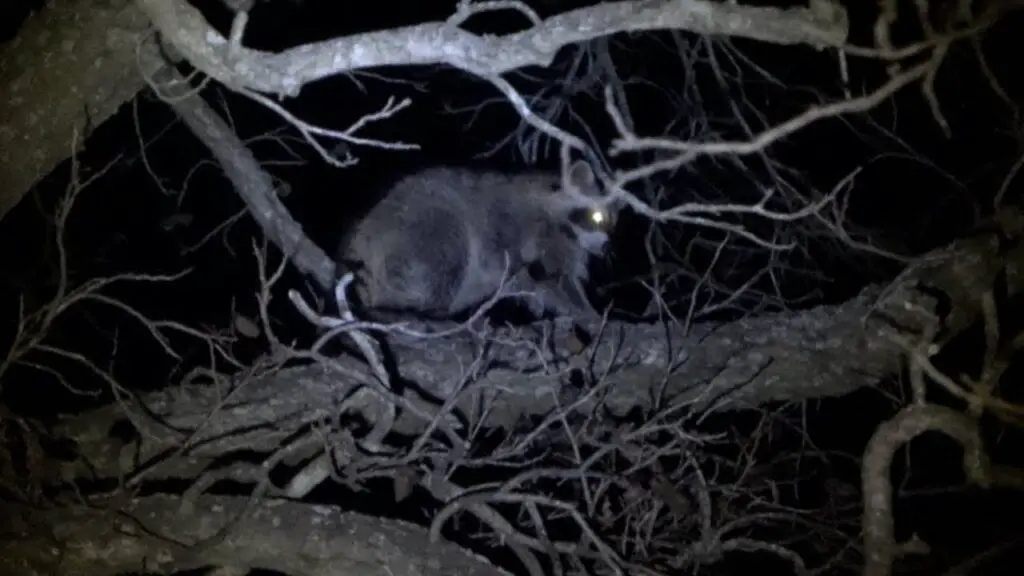Raccoon control in Indiana raises important questions about legality. Explore the laws and alternatives to manage raccoon nuisances responsibly.
n this article, we’ll navigate the intricacies of raccoon management, which require a clear understanding of Indiana’s regulations and humane alternatives. Learn more below.
Is It Possible to Kill Raccoons in Indiana

In Indiana, resident landowners and tenants have the authority to trap a raccoon causing damage on their property without needing a permit from the Department of Natural Resources (DNR).
However, there are specific guidelines to follow. The captured raccoon must either be humanely euthanized or released within the same county where it was captured, on private property for which you have obtained permission to release the raccoon.
It’s important to be aware that if you decide to euthanize a raccoon trapped under a nuisance wild animal control permit, it may result in the unintentional harm or death of other wild animals. This could potentially lead to the indiscriminate killing of raccoons and opossums.
As a responsible approach, we recommend reaching out to an appropriate agency if you encounter a wild animal that appears to be abandoned, sick, injured, or is displaying unusual behavior. They can provide assistance in handling such situations safely and effectively.
For humane approach’s on raccoon control, consult our comprehensive guide on ‘How to get rid of Raccoons.’
Best Practices for Disposing of a Dead Raccoon in Indiana
Here are some recommended guidelines for the proper disposal of a deceased raccoon in Indiana:
- Ensure prompt disposal within 24 hours of discovering its demise, in accordance with Indiana state law.
- Avoid disposing of the raccoon in public areas or on another person’s property.
- Do not report the deceased raccoon to the Sick or Dead Wildlife Reporting hotline, as it does not fall under the category of sick or injured wildlife.
- Adhere to legal disposal methods for dead raccoons in Indiana, including burial, incineration, rendering, and composting.
- Consider reaching out to a local rendering company, which can remove the carcass for a fee.
- If the raccoon was found on public property, get in touch with the relevant authorities to arrange for its removal.
Properly disposing of a deceased raccoon is essential to prevent the potential spread of diseases and to uphold public health and safety standards.
Risks of Killing Raccoons in Indiana
Here are some important considerations regarding the risks associated with killing raccoons in Indiana:
- Disease Transmission: Raccoons are known carriers of zoonotic diseases, including rabies and raccoon roundworm, which can be transmitted to humans and pets through bites, scratches, or contact with their feces.
- Ecological Impact: Raccoons play a vital role in maintaining the balance of the ecosystem, and their removal from it can disrupt the natural order.
- Inhumane Treatment: Killing raccoons in an inhumane manner can result in unnecessary suffering and pain for the animal.
- Indiscriminate Killing: Utilizing a nuisance wild animal control permit to eliminate raccoons may lead to the unintended killing of numerous other wild animals, potentially resulting in the widespread destruction of raccoons and opossums.
It is crucial to carefully consider these risks before making the decision to kill raccoons in Indiana. Instead, we recommend reaching out to an agency specializing in wildlife management to handle situations involving raccoons that are abandoned, sick, injured, or displaying unusual behavior. This approach ensures the well-being of both the animals and the community.
Alternatives to Killing Raccoons in Indiana
Here are some effective alternatives to consider instead of resorting to killing raccoons in Indiana:
- Trapping with Release: If a raccoon is causing damage on your property, you can trap it without needing a permit from the Department of Natural Resources (DNR). After trapping, the raccoon should be either humanely euthanized or released within the same county where it was captured, on private property with the owner’s permission.
- Use Natural Repellents: Experiment with natural repellents like cayenne pepper or ammonia to discourage raccoons from entering your property.
- Habitat Modification: Prevent raccoons from entering buildings like barns, sheds, or garages by repairing any holes or openings they might use as entry points. Secure these structures by closing doors at night to deter raccoons.
- Consult Licensed Wildlife Control Services: Consider reaching out to licensed wildlife control companies in Indiana. They have the expertise and tools to handle nuisance wild animals safely and effectively.
- Preventative Measures: Proactively prevent raccoons from accessing your property by securing trash cans, removing potential food and water sources, and sealing any entry points that raccoons may exploit.
Explore these alternatives before resorting to lethal measures. Killing raccoons should be considered a last resort.
In cases involving raccoons that are abandoned, sick, injured, or displaying unusual behavior, it’s highly recommended to contact an agency or organization specializing in the humane handling of wildlife.
This approach ensures the well-being of both the animals and the community.
